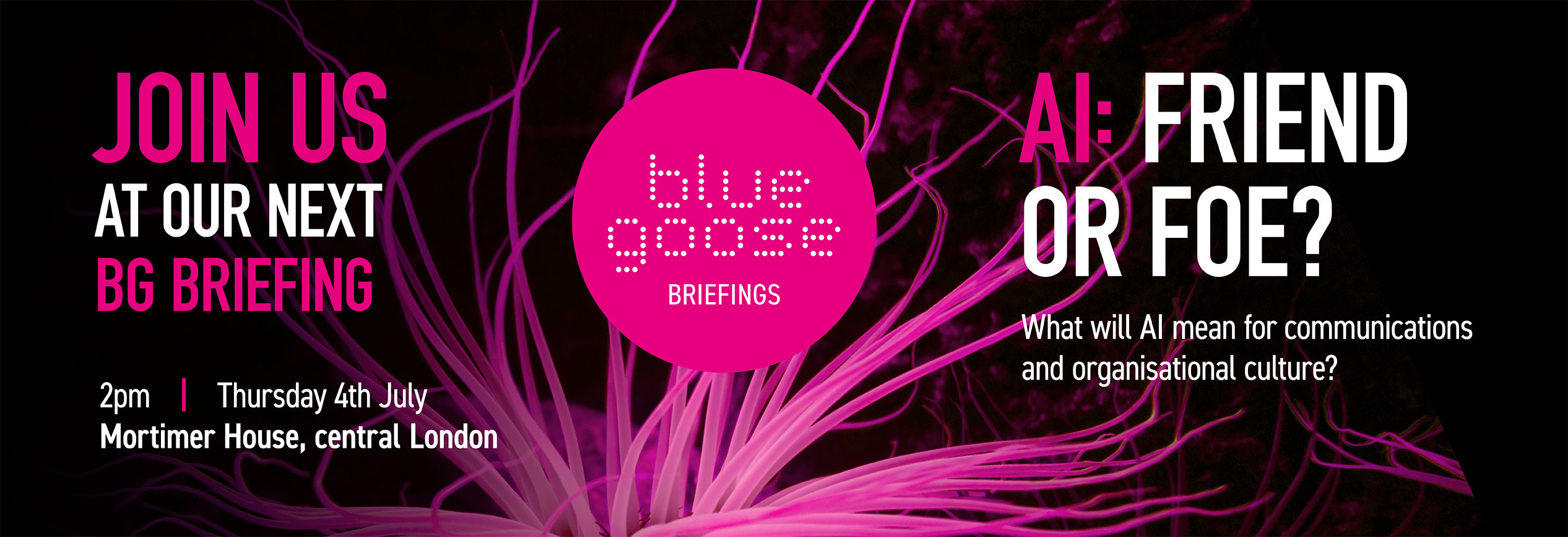To some, the value of Organisational Values is a fairly perennial conundrum in the world of employee engagement. We think we have to have them, but do they really make a difference?
In short – yes.
Clear Values are always a possible point of competitive difference – a mark of distinction.
Similarly, they can drive the right behaviour to support purpose and strategy – the conduit between ambitions and outcomes.
They also provide the foundation for other organisational initiatives – such as conduct on Equality, Diversity and Inclusion – if sentiments like tolerance and respect are clearly established.
Are you trusted?
The Institute of Internal Communication this year highlighted ‘trust’ in their IC Index as a necessary point of focus for organisations, for a few specific reasons:
- Less than half of the UK workforce believe their organisation operates in the best interest of employees
- 32% of people believe their organisation isn’t being clear enough about the reasons behind change
- Only 23% of employees trust leadership to do the right thing
With effective, honest and integrated Values, we think these numbers could be different.
Values as a Cultural Contract
Done well, good Values should always represent something of a soft contract between an organisation and their people – a promise culturally of ‘how things are done around here’.
Contractually, they can act as an indicator to all employees of what is expected of them, and what they will get back in return. Do and be done to, so to speak.
Clear and simple Values, placed front and centre, and seen inside and out of an organisation, provides a clear message to everyone about their importance.
The key role of managers and leaders
With an increase in the reliance of managers as communicators, the new-found importance that these people are trusted and seen as acting in accordance with the organisational direction is pivotal.
Managers benefit from the guidance of Values for decision making, but also as a connection to organisational purpose, leading to greater trust. As the IC Index states: “For line managers to be trusted, nothing is more important for them than to walk the talk and act in line with their organisation values.”
And providing leaders are onboard too, the importance of Values and the trust that organisations care is a two-way street. That includes investment in their curation (be it time and / or money), a desire to communicate them clearly and critically to use and reference them in their own leadership style, spirit and decision-making process.
Invest in Values, reap the rewards
If this is all in place, Values represent a crucial reference point for everyone and a place from which no-one should stray too far. In theory, if they work and everyone is following them, things will never go too far wrong.
Measurement of Values are sometimes seen to be cosmetic. But how values are integrated into processes and culture where everyone within an organisation knows, displays, and lives their organisational Values can directly impact: performance and productivity, the amount of employees that feel that they have a say; that they are heard and respected; and ultimately valued by their organisation.
With the IoIC highlighting ‘trust’ as a timely issue, and a generation entering the workforce that ranks purpose highly in their job searches and career aspirations, changes to these metrics are likely to directly correlate with attraction, retention and progression.
So it might seem hard to measure, but the links are there and those that follow the path will reap the rewards.
Discover how we have helped companies integrate Values into their business to shape behaviour and performance.
Get in touch if you need any help developing or refreshing your values by emailing hello@bluegoose.co.uk




